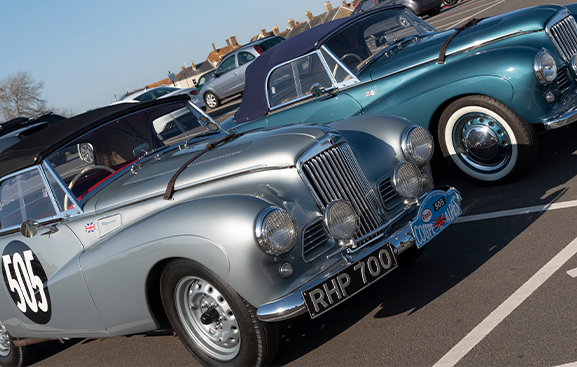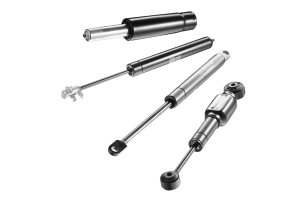The Heritage Engineering Apprenticeships keeping classic cars running

What image comes to mind when you think of an iconic Classic Car?
James Bond’s 1964 Aston Martin DB5?
The 1963 Volkswagen Beetle - "Herbie" - from the Love Bug?
The Ferrari 250 GT California Spyder from Ferris Bueller’s Day Off?
The 1948 Ford De Luxe from Grease?
Maybe even be an old Chitty Chitty Bang Bang race car style?!

Classic cars are a testament to the beauty of a bygone era. The unique design, intricate details, and the ability to withstand the test of time make classic cars a sought-after commodity for many car enthusiasts.
However, maintaining and restoring classic cars requires a particular set of skills that are not often found in modern car mechanics. As a result, classic car apprenticeships have become increasingly popular among those interested in the art of car restoration.
Heritage vehicle engineering apprenticeships offer a unique opportunity to learn the skills and techniques required to restore and maintain classic and heritage vehicles. This type of apprenticeship provides practical experience and exposure to a wide range of classic vehicles, allowing apprentices to develop a deep understanding of the history and mechanics of these vehicles.
The apprenticeships typically last between one and four years depending on the level of expertise and the extent of the restoration work required. During this time, apprentices work alongside experienced classic car restorers and mechanics, gaining hands-on experience in all aspects of classic car restoration.

These apprenticeships are proving to be incredibly beneficial to both the classic car industry and individuals interested in restoring older vehicles for several reasons:
- Preservation of Traditional Skills: they provide a way to preserve traditional engineering skills which are essential for the restoration of classic vehicles which are typically not as widely taught in modern engineering programmes.
- A Passion for Classic Cars: Heritage Engineering Apprenticeships are often taken up by people who have a passion for classic cars. This passion translates into a commitment to preserving and restoring these vehicles, ensuring that they are not lost to time.
- Boosting the Classic Car Industry: The classic car industry is an important part of many economies, providing jobs and driving tourism. Pardon the pun!
- Meeting the Needs of Classic Car Owners: Restoring a classic car can often become a difficult and time-consuming process. Having skilled technicians and engineers available to restore and maintain these vehicles is essential for owners of these cars who want to keep them cars running smoothly and looking their best for as long as they can.
In addition to practical experience, classic car apprenticeships provide apprentices with the opportunity to work on a wide range of classic cars. This exposure allows apprentices to develop a deep understanding of classic car mechanics, including the intricacies of different engine types, suspension systems, and electrical systems.
This broad knowledge base is invaluable for aspiring classic car restorers, as it enables them to take on a wide range of restoration projects, from minor repairs to full-scale restorations.

Here at FA Parkes we supply a vast range of parts for heritage and classic vehicles and are one of the leading suppliers in the field. In addition to our vast range of motorbody fittings including gas struts, gas springs and rotary dampers, we also supply many classic car parts such as specialist door handles and hinges, among others.
Browse our full range online or for any enquiries, contact us on 01942 681 996, email sales@faparkes.co.uk or fill in our contact form.











